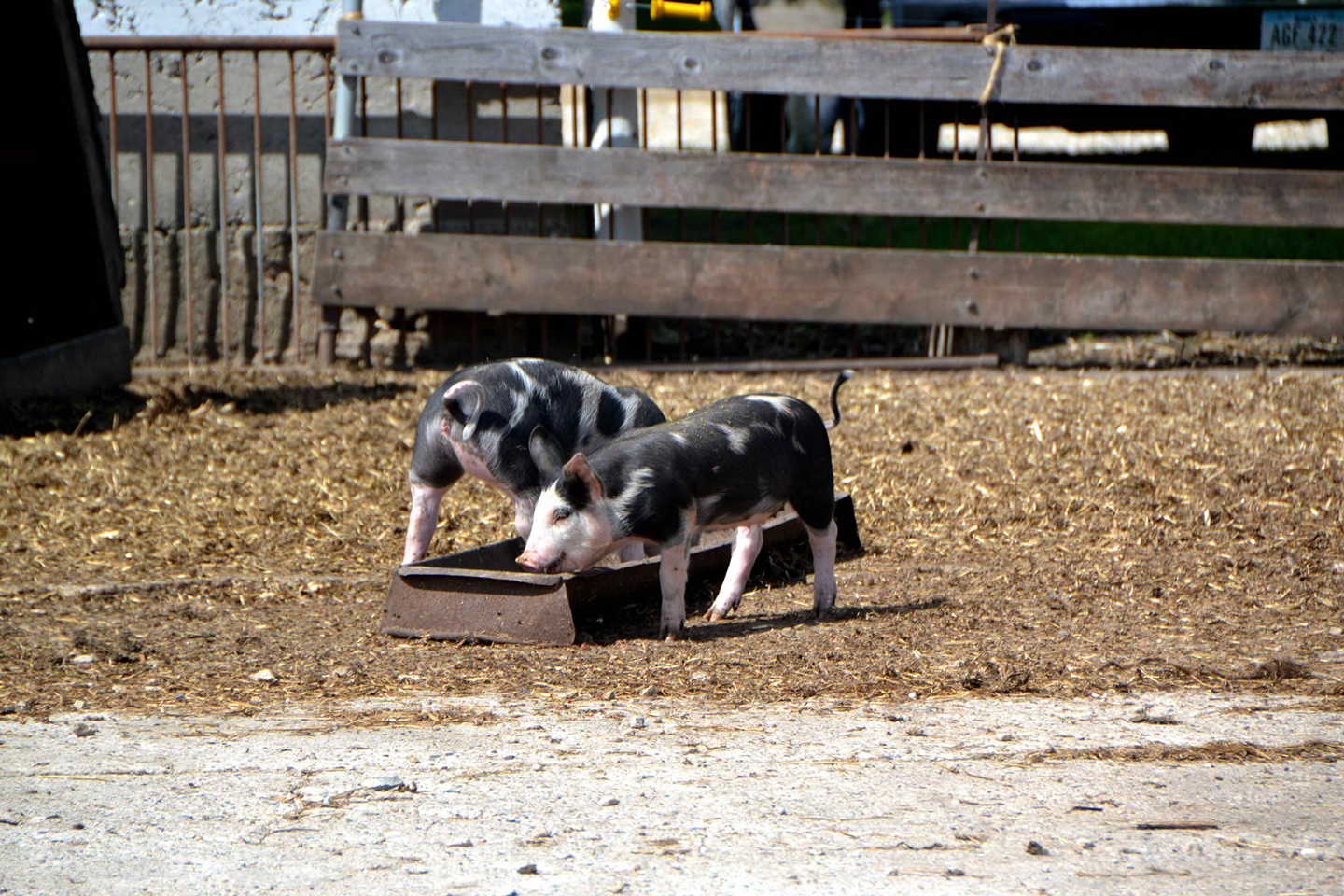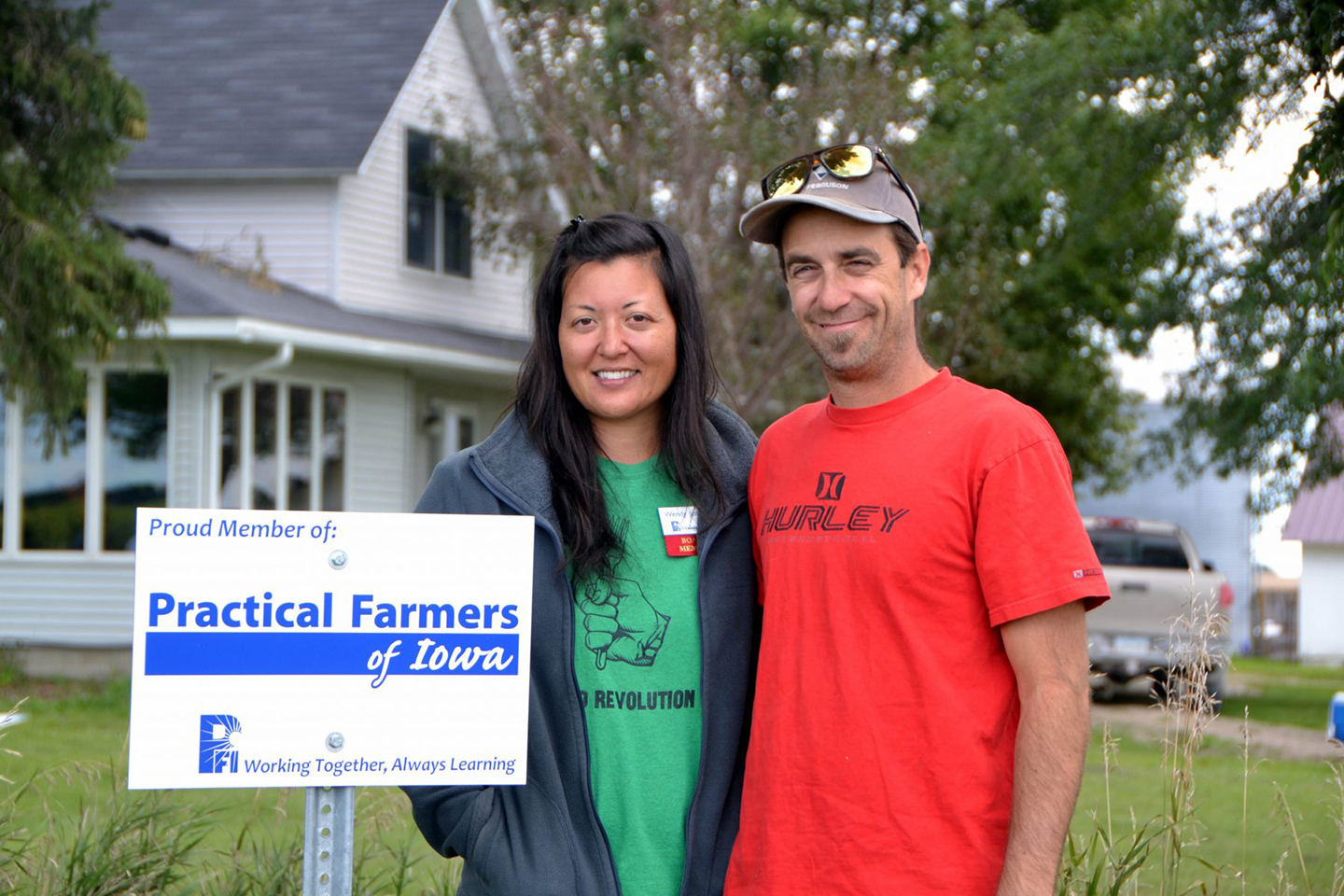We sit down and chat with Wendy Johnson, a beginning row crop and livestock farmer near Charles City, Iowa. She recently completed her transition from conventional production to organic and shares some of her challenges, successes and the importance of great mentors.
How were your experiences transitioning from a conventional farm organic?
They were very positive. First, I went to Practical Farmers of Iowa, a knowledge sharing farmer-to-farmer led organization, and asked organic farmer members a lot of questions. Those were the best resources, to speak with actual farmers who had transitioned conventional into organic themselves.
The second step was understanding what it means to transition. I asked questions like: is it difficult to separate conventional and organic, what about cleaning, how stringent are those rules and regulations, and how arduous is the paperwork? Things that we don’t have to think about as conventional farmers.
Asking those kinds of questions to farmers who abide by the regulations by the certifiers—that was the most helpful. When I first started considering transitioning to organic there weren’t as many resources out there as I see today. I’m on a couple different listservs now that are specific to transitioning to organic, which is phenomenal.

What were your biggest challenges in the field?
Rotations and weed control. As a conventional farmer it’s so easy to just move to Roundup or a chemical to get rid of your weed problem. Working on a conventional farm for quite some time helped me understand the agronomics. But in terms of organic, I didn’t really know what a good seeding population, and how much and what kind of fertilizer should I put down to grow a good crop of corn. How do I grow really good dairy quality alfalfa, things like that. What is a cultivator, and how do I use it? So now I have my organic “go-to mentors,” I call them. And many times they are willing to share information with me.
The value of mentorship can’t be over-emphasized.
It is huge, especially for people who learn by doing, better than by theory or in a book.

Have any of your conventional farming neighbors been influenced by your work?
This year the corn looked great, and because it’s near a highway I didn’t want to hear any negative feedback about how bad I did on weed control. I guess if I was going to mess up, everyone would know about it. I had one person from the nearby co-op say, “Your farm looks pretty good!” They knew it was organic. Information in small communities travels pretty quickly. So people that I didn’t know, they knew about this organic field; so I see it as a positive thing that people are aware. I’m glad I did well — the first year. The corn is beautiful, even though we had quite a bit of flooding this summer, a lot of rain. The weeds were under control, and I was just really satisfied with the results.
Soybeans are in my rotation next year, and that will come with all different sorts of challenges, because you can’t hide any weeds in soybeans. All my mentors, I have to give them the credit, because they really helped me through cultivation. I’m sure I will lean on them again for soybeans.
Do you have any advice for people who are making the change like you did?
f you’re interested in diversifying or in organic agriculture, the biggest thing would be to seek out resources, including your state organic association. And certifiers too, if you have a question about anything. For example, I wanted to put diatomaceous earth in my bin and I thought I better check with the certifier first to make sure. You have to have a little humility and ask a lot of questions. Because if you don’t, there are consequences. If you get your certification revoked, then you have to start all over — it’s just not economical. It’s best to ask questions before you start, no matter how big or small.



















